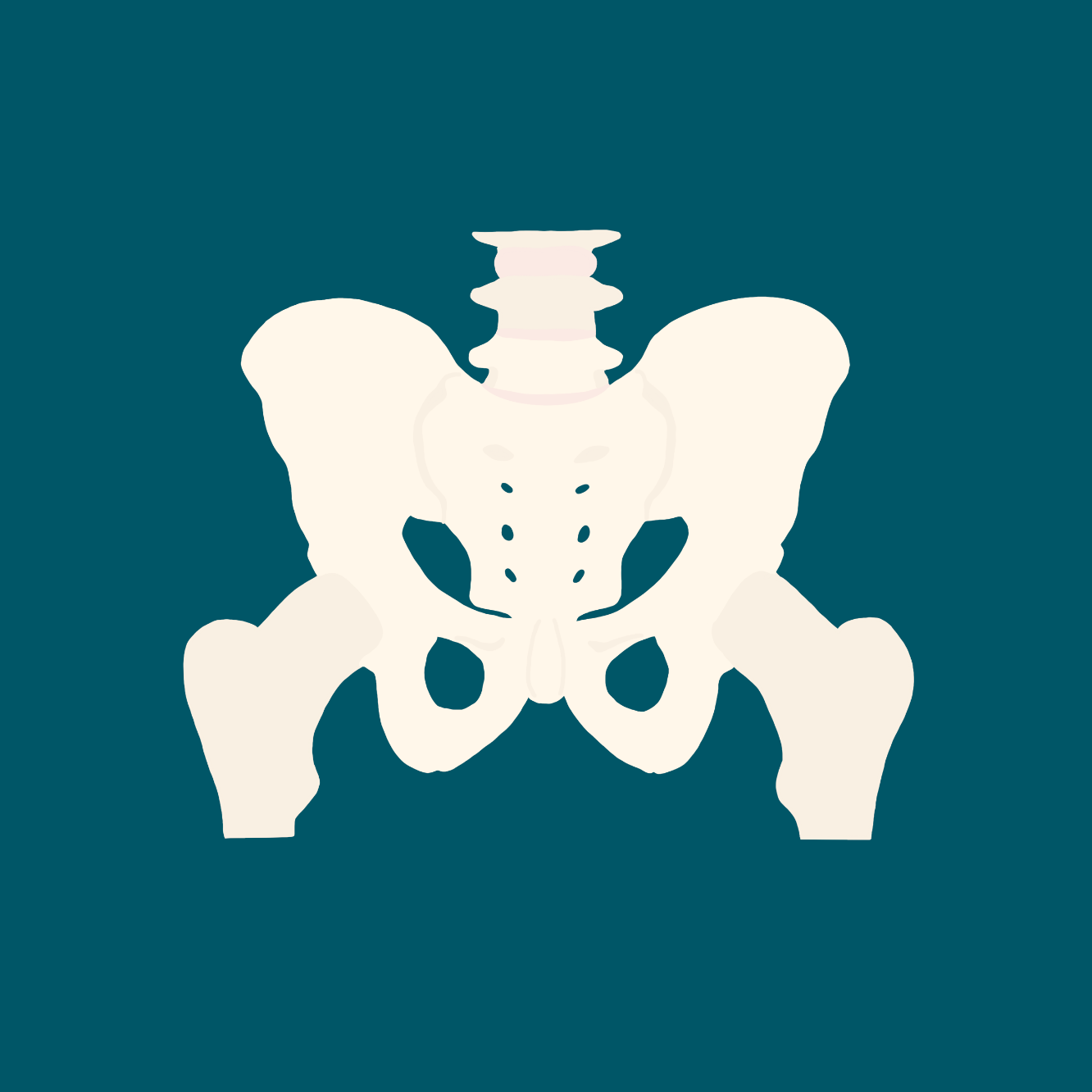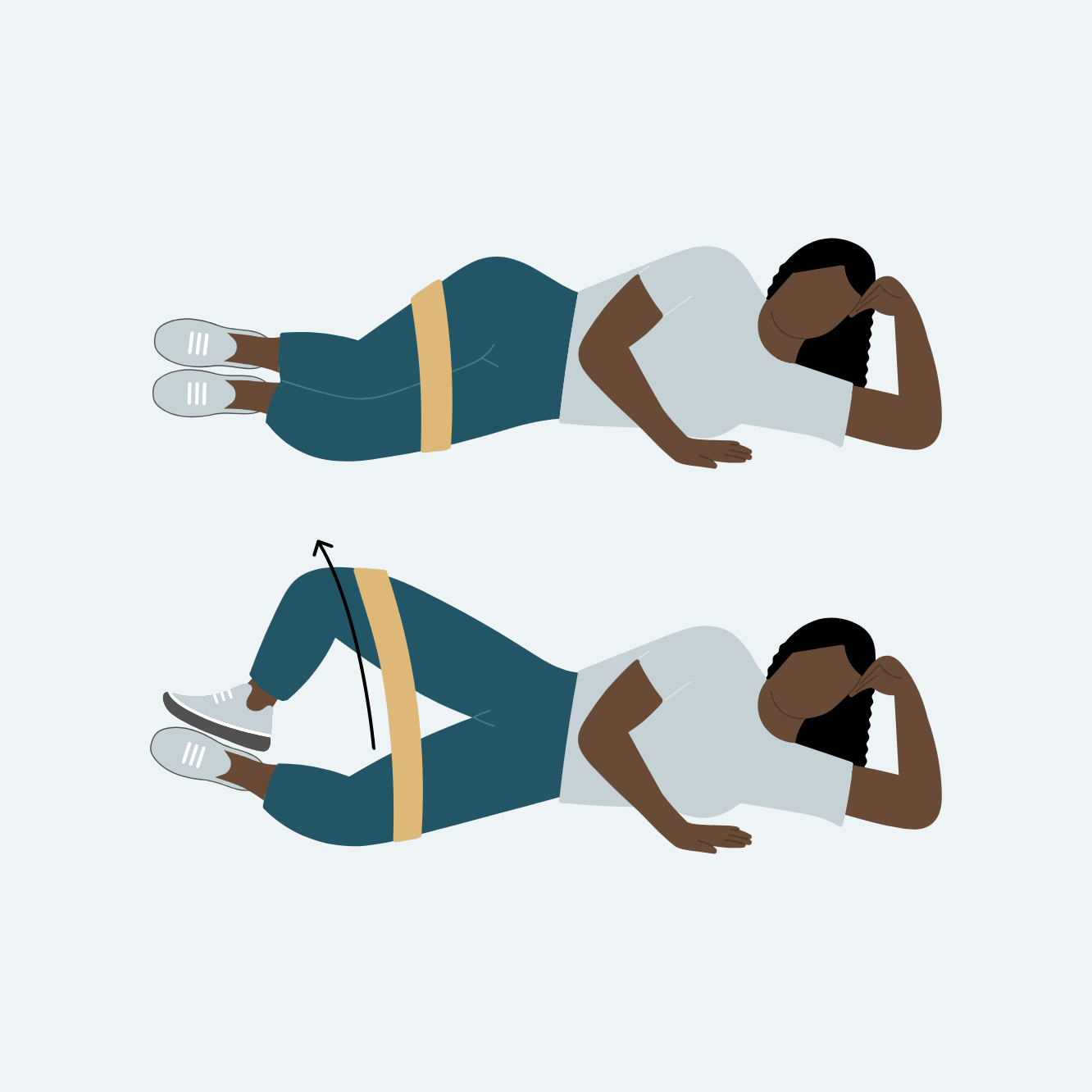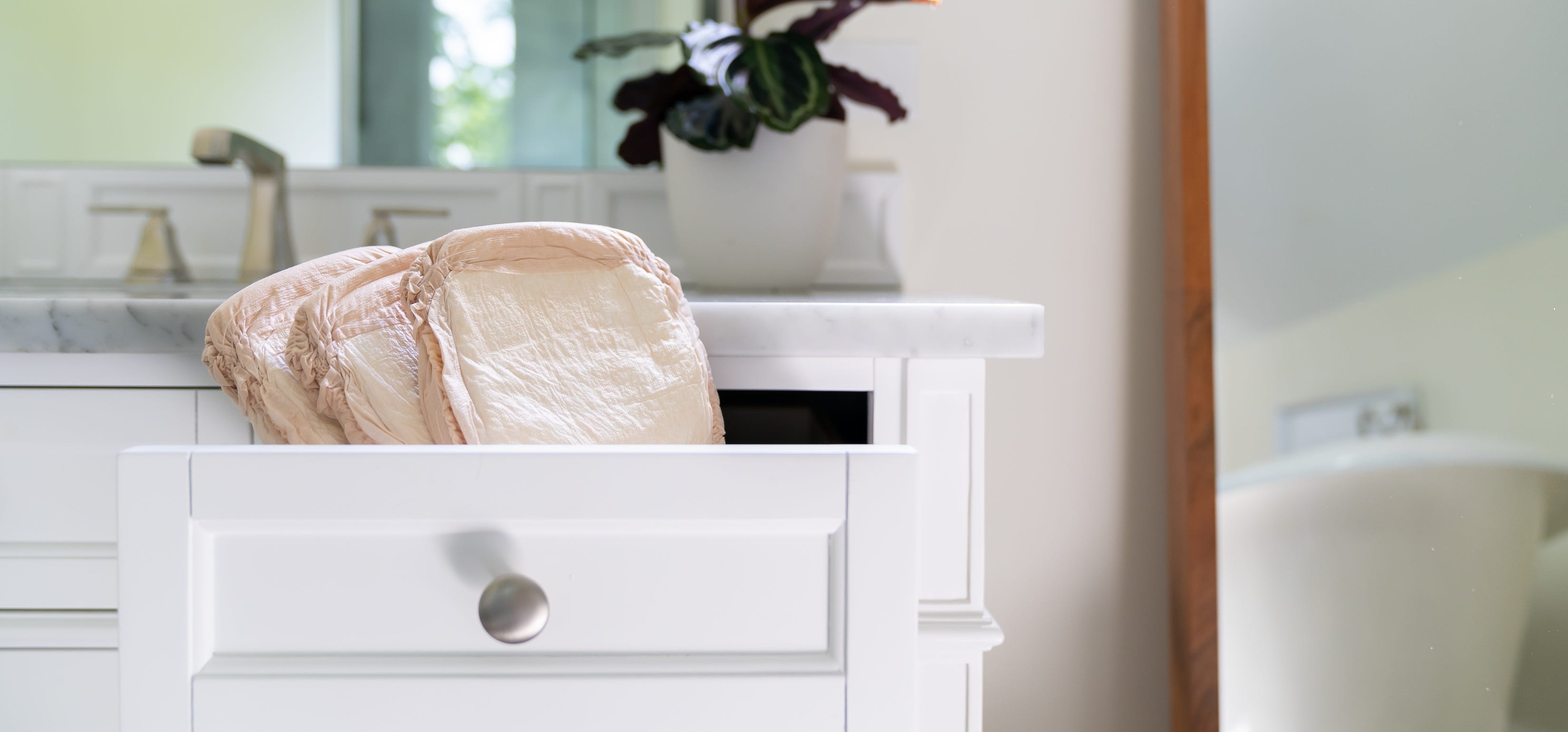What Is the Pelvic Floor?
The pelvic floor is a group of muscles made up of 3 layers - the superficial layer, the intermediate layer, and the deep layer. The majority of the pelvic floor muscles are the same in males and females, with only one major difference in one of the superficial muscles that support the erectile tissue in both men and women. In the male, this is the vulva spongiosum muscle, and in females, this is the vulva cavernosal muscle.
The pelvic floor muscles act like a hammock and hold all of the pelvic organs safely in place. It supports functions such as urination and bladder control, bowel control, sexual function, and giving birth. It supports the urethra and rectum, and the pelvic floor is a major part of overall health for both women and men.
What Are the Symptoms of Urinary Incontinence?
Check Your Eligibility
2 Easy Steps
Discover the continence care essentials available through your Medicaid plan.
People often think incontinence symptoms are caused by loose pelvic floor muscles. However, this isn’t always the case. In the "Hollywood" media, we often hear that we want tight pelvic floor muscles to prevent things like pelvic organ prolapse and leakage, but "tight" isn’t really the right word. Tight muscles can cause too much tension in the pelvic floor, which increases the pressure on the bladder. This increase in pressure can then lead to urge incontinence. Urge incontinence, also referred to as overactive bladder (OAB), is often described by the sudden urge to urinate, followed by involuntary total voiding of the bladder or bladder leakage.
Conversely, when the pelvic floor muscles are not supportive, or not strong enough, that can lead to stress urinary incontinence. Stress incontinence is described as leakage that occurs after a sneeze, cough, laugh, heavy lifting, or extraneous exercise.
If you're experiencing incontinence symptoms, or a loss of bladder control, you aren't alone. You can stay confident and protected from bladder leakage through Aeroflow Urology. To check your eligibility for continence care supplies such as bladder control pads, protective underwear, or adult briefs, fill out our easy 2-step form.
Pelvic Floor Dysfunction in Women
Typically, we tend to see weaker, or less supportive, pelvic floor muscles in women. Factors like age, hormonal changes (menopause), and having children can all contribute to pelvic floor dysfunction. Strengthening your pelvic floor muscles is a great place to start if you begin to experience symptoms of incontinence. It is very important to make sure you are exercising the right muscles when beginning pelvic floor muscle training. I've compiled a list of pelvic floor muscle exercises for beginners, as well as tips to identify the correct muscles here.
Most importantly, I'm a big proponent of preventative care. Everybody should see a pelvic floor physical therapist no matter what, and females should especially see a pelvic floor PT if they’re about to have a baby or if they are an athlete. If you experience increased urinary urgency or frequency, increased urine leakage or accidental voiding of the bladder, this should be addressed by a healthcare provider as soon as possible. Incontinence is common, but it is not normal.
For women, and men, continual sucking in of the stomach can also create problems with the pelvic floor. Note that there is a difference between flexing or engaging your abdominal muscles and sucking in your stomach. When you suck in, there is an increase in pressure that goes into your abdominal cavity. However, when you flex your abdominal muscles, that pressure goes into your diaphragm.
If you continually suck in your stomach and have repetitive, prolonged pressure pushing down into your lower abdomen, this can cause increased pressure on your pelvic floor, which can lead to incontinence symptoms.
Another thing to keep in mind is wearing heels. When you wear heels, your pelvis can become miss-aligned over time - leading to pelvic floor issues. I’m not advocating for giving up your heels, trust me, but it is something to keep in mind if you’re experiencing pelvic pain.
Pelvic Floor Dysfunction in Men
Typically, we tend to see more instances of overly tight pelvic floors in males, and we tend to see weaker pelvic floor muscles in females. In men, I’ve found that repeated butt clenching can be a tell-tale sign that a man is experiencing a tight pelvic floor. Repetitive glute activation can lead to chronic prostatitis or symptoms of urinary urgency and frequency. A tight pelvic floor can also lead to difficulty getting and maintaining erections because the tightness can limit blood flow and cause sensitivity issues to the genitals from the muscles being too tight.
The butt clenching habit typically occurs from anxiousness and a desire to overcompensate for other issues they may be experiencing. As a healthcare provider, I see a lot of men with lower back issues try to compensate with accessory muscles such as the glutes and the obturator internus (a deep hip muscle located in the pelvis). These muscles can get tighter to support the lower back weakness. From "nipples to knees" is what I always say. They are all intertwined. If one part of the body is out of alignment, the others will work to compensate for it. This can cause disruptions in the body’s function, such as pelvic floor disorders and incontinence.
Other signs to look out for with pelvic floor dysfunction are bladder, hip, or rectal pain. Additionally, chronic constipation can be a sign of issues with the pelvic floor muscles. Men can do kegel exercises, too! Pelvic floor muscle exercises are a great treatment option for men that are experiencing concerns with their pelvic health.
Get Free Incontinence Supplies
To see if you can get free incontinence supplies through Medicaid or other insurance plans, fill out our eligibility form. From there, you'll speak with a specialist and have the supplies shipped directly to your door every month.
Information provided on the Aeroflow Urology blog is not intended as a substitute to medical advice or care from a healthcare professional. Aeroflow recommends consulting your healthcare provider if you are experiencing medical issues relating to incontinence.













